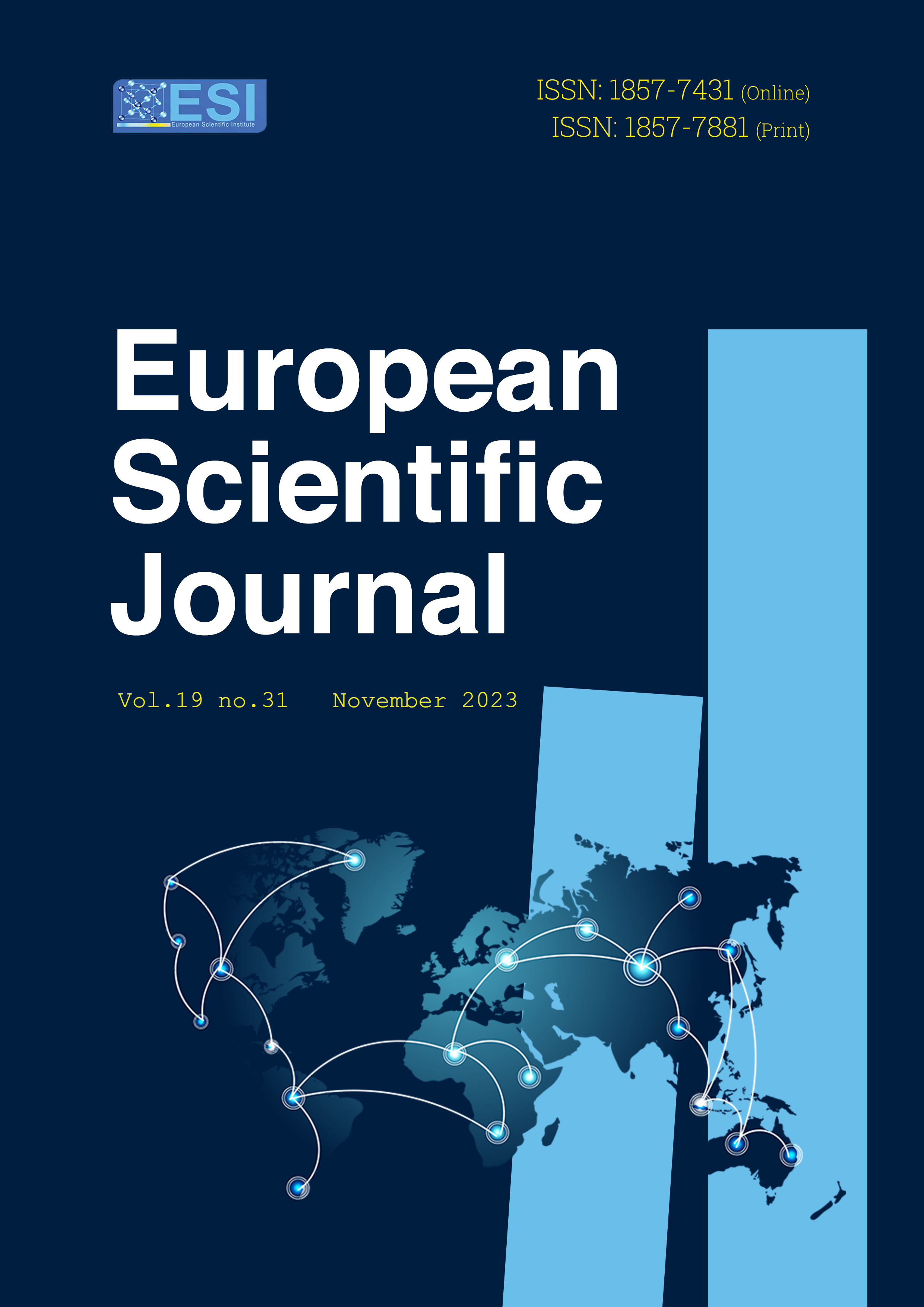Examining Travel Habits During the Fourth and Fifth Waves Of The COVID-19 Pandemic
Abstract
Due to changes in the structure and system of the consumer society, the previously used consumer, geographical, and demographic characteristics did not prove sufficient for the exploration and analysis of the reasons behind consumer habits and tourism behaviour. The characterisation of traditional consumer behaviour was complemented by psychological and psychographic factors. These factors also include lifestyle and motivation. As part of a quantitative study based on an online survey, regular travelers were surveyed, alongside Hungarian people interested in traveling. This paper focuses on arranging the measured sample of travelers into homogeneous groups based on their tourism motivation, lifestyle, and travel behaviour as it relates to COVID-19 pandemic. It was also important to describe and characterize the resulting groups of travelers based on their well-identifiable characteristics. The study was conducted as a continuation of foundational research. Previous research analysed the impact of the first three waves of the COVID-19 pandemic on travel behaviour. The results of the present research refer to the effects of the fourth and fifth waves
Downloads
PlumX Statistics
References
2. Debreceni, J. & Fekete-Frojimovics, Zs. (2021). A vendéglátás nemzetközi kutatási paradigmái a Covid19 árnyékában. Szisztematikus szakirodalmi áttekintés és egy koncepcionális keretmunka. Turizmus Bulletin, 21(4), 5–13.
3. Decrop, A. & Snelders, D. (2005). A grounded typology of vacation decisionmaking. Tourism Management, Vol. 26, No.2, 121-132.
4. Farkasné, F. & M.-Molnár J. (2006). Mikroökonómia. Budapest: Szaktudás Kiadó Ház
5. Halbwachs, M. (1971). A munkásosztály fogyasztói tendenciái (1913) In. A francia szociológia. Budapest: Közgazdasági és Jogi Könyvkiadó
6. Jobbler, D. (2002). Európai marketing. Budapest: KJK-KERSZÖV Jogi és Üzleti Kiadó Kft.
7. Kassai, Zs. (2009). Faktoranalízis SPSS alkalmazásával. Szent István Egyetem, Gazdálkodás és Szervezéstudományi Doktori Iskola, Gödöllő
8. Kopányi, M. (2002). Mikroökonómia. Budapest: KJK- KERSZÖV Kiadó Kft.
9. Kopátsy, S. (1992). A fogyasztói társadalom közgazdaságtana. Budapest: Privatizációs Kutatóintézet
10. Kotler, P. (2006). Marketingmenedzsment. Budapest: Akadémiai Kiadó Kft.
11. Lawler, EE., Hackman, JR., & Porter, LW. (1975). Behavior in organizations. New York: McGraw-Hill
12. Mitchell, A. (1983). The nine american Lifestyles. New York: Macmillan Publishing Company
13. Popcorn, F. & Marigold, L. (2001). Éva marketing, Budapest: Geomédia Kiadó Kft.
14. Rainwater, L., Coleman, R., & Handel, G. (1959). Workingman's Wife. New York: Oceana Publications.
15. Summer, W. G. (1978). Népszokások (1936). Budapest: Gondolat Kiadó.
16. Uhalis, D. & Costa, C. (2006). Tourism Management Dynamics. Trends, management and tools, 3
17. Veblen, T. (1975). A dologtalan osztály elmélete. Budapest: Közgazdasági és Jogi Könyvkiadó
18. Veres, Z. (2007). A marketing alapjai. Budapest: Perfekt Gazdasági Tanácsadó Oktató és Kiadó Zrt.
19. Veres, Z. & Szilágyi, Z. (2007). A marketing alapjai. Budapest: Perfekt Gazdasági Tanácsadó Oktató és Kiadó Zrt.
20. Weber, M. (1964). The Theory of Social and Economic Organisation. New York: The Three Press
21. Wind, Y. & Green, P. (2011). Some Conceptual, Measurement, and Analytical Problems in Life Style Research, Marketing Classics Press
22. Zalai, E. (2000). Matematikai közgazdaságtan. Budapest: KJK KERSZÖV Kiadó Kft.
Journal Articles
1. Barletta, M. (2002). Marketing to women, USA: Dearborn Trade Publishing
2. Havighurst, R. & Feingenbaum, K. (1959). Leisure and Lifestyle. American Sociologist,
396-404.
3. Hexter, M. B. (1916). Implications of a Standard of Living. American Journal of Sociology,
212 - 225.
4. Kalmárné, R. Cs. & Hering, K. (2019). Turisztikai magatartás és turizmusmarketing esettanulmányok, Neumann János Egyetem, Kecskemét
5. Lazer, W. (1963). Life Style Concepts and Marketing, in TowarScientific Marketing. Chicago: American Marketing Association
6. Soós, G. (2020). Az élelmiszer-fogyasztói szokások változása a COVID-19 vírus megjelenéséhez kapcsolódóan Magyarországon”, Marketing & Menedzsment, 54(3), 15–27.
7. Ward, J. H. Jr. (1963). "Hierarchical Grouping to Optimize an Objective Function", Journal of the American Statistical Association, 58, 236–244.
Doctoral Dissertation
1. Kalmárné, R. Cs. (2018). Turisztikai motiváció és életstílus összefüggései a belföldi utazási szokásokban. [egyetemi doktori disszertáció]. Gödöllő: Gazdálkodás- és Szervezéstudományok Doktori Iskola, Szent István Egyetem, Elérhető: https://archive.szie.hu/sites/default/files/kalmarne_rimoczi_csilla_ert ekezes.pdf (2023.04.05.)
Internet Sources
1. Guller, Z. (2020). Budapest turizmusa, hitelprogram és a Tourinformok felújítása. Magyar Turisztikai Ügynökség [online] Elérhető: https://mtu.gov.hu/podcast. (2020.10.31.)
2. Ilyés Noémi: turizmus.com (2020). UNWTO: Bizalom és együttműködés kell a turizmus újraindulásához [online] Elérhető: https://turizmus.com/utazas-kozlekedes/unwto-a-bizalom-es-azegyuttmukodes-donto-a-turizmus-ujraindulasahoz-1170517 (2020.06.23.)
3. R Core Team (2021). R: A language and environment for statistical computing. R Foundation for Statistical Computing, Vienna, Austria. [online] Elérhető: URL https://www.R-project.org/.(2020.03.11.)
4. Raffay, Z. (2020). A COVID-19 járvány hatása a turisták fogyasztói magatartásának változására. [online] Elérhető: https://ktk.pte.hu/sites/ktk.pte.hu/files/images/008_A%20COVID19 %20jarvany%20hatasa%20a%20turistak%20fogyasztoi%20magatart asanak%20valtozasara .pdf (2020.05.15.)
5. statista.com (2023). Global inbound and outbound visitor growth 2020-2024 [online] Elérhető: https://www.statista.com/statistics/274009/visitor-growth-forecastfor-global-tourism-market/ (2023.02.16.)
6. unwto.org (2020). 100% of global destinations now have COVID19 travel restrictions UNWTO reports [online] Elérhető: https://www.unwto.org/news/covid-19-travel-restrictions WHO (2020). [online] Elérhető: https://www.who.int/emergencies/overview (2020.10.30.)
7. Word Travel & Tourism Council (2020). Economic Impact Reports. World Travel & Tourism Council. [online] Elérhető: https://wttc.org/Research/Economic-Impact (2020.10.05.)
Copyright (c) 2023 Rimoczi Csilla, Jager Viktor, Lenkovics Beatrix

This work is licensed under a Creative Commons Attribution 4.0 International License.








